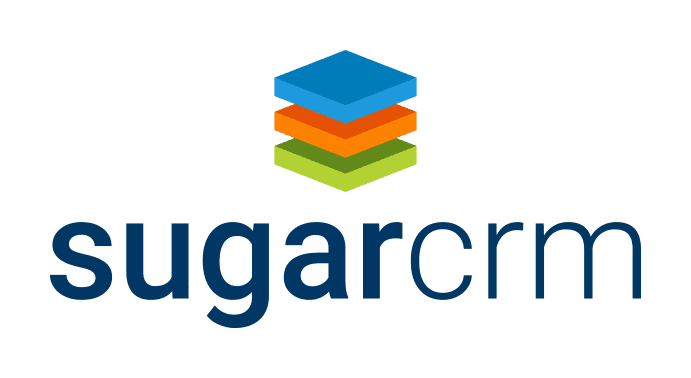According to the 2021 Fortune/Deloitte CEO Survey, when CEOs were asked about their biggest challenges, attracting and retaining talent was the number one reason. Employee attraction and retention include hiring, developing, growing, and engaging new and seasoned staff alike.
As a result, human resources departments require targeted and strategic input systems to help respond to an ever-changing business landscape and provide accurate, insightful workforce data to meet the goals of HR-led initiatives (especially attracting and retaining top talent).
What is an HRMS solution?
Modern HR departments are improving corporate policies and making smarter decisions with comprehensive, customizable HR software for small and medium-sized businesses. An HRMS solution (HRMS) is a complete human resource management system that helps companies maximize employees ROI.
What an HRMS does for you
A streamlined HRMS provides you with a total solution for managing the entire employee life cycle. As your business grows and your HR needs evolve, your HRMS systems scale with you.
- Find and hire the best talent
- Retain and grow your best employees
- Manage time and attendance
- Manage your employee benefits
- Make smarter staffing decisions
- Go paperless
Nothing is as expensive as hiring the wrong employee. With the self-service tool within a modern HRMS recruiting and onboarding solution, you can automate and streamline recruiting, hiring, and onboarding employees. Now you can save time, reduce employee turnover, and identify internal candidates for leadership roles easily.
The keys to success in today’s hybrid workforce:
- Productivity
- Flexibility
- Engagement
- Efficiency
- Agility
Through modern technology like an HRMS solution, you improve the time management of your entire workforce and cover all types of employee absences. An HRMS lets you spend less time on stressful paperwork by authorizing employees to select benefits through online open enrollment and eliminating the costly errors associated with duplicate data entry and missed enrollments. With third-party integration capabilities to further simplify HR operations, you’re realizing how much more you can do with an HRMS system.
But merely accepting that you need an HRMS solution is not enough: you must select the right one. Here are some of the most important things to look for in your HRMS solution.
Your HR needs
You’ll find that there are HRMS solutions designed especially for SMEs, SMBs, or more complex types of businesses. First, consider selecting the HRMS solution based on your business type, then, determine what solutions you want to be handled by your HRMS solution.
For instance, HR managers spend almost half of their time monitoring employees, creating reports, creating and posting job descriptions, and managing payroll. The right HRMS solution should automate any repetitive, time-consuming, or tedious parts of these tasks.
Your employee needs are significant as well.
Consider the employee skills and the user interface of your chosen HRMS solution. Every employee should find the User Interface intuitive, easy to use, navigate, and understand. Your HRMS solution should also have an Employee Self Service system that provides access to meaningful information like payment history, time off allocation, and contact information for each employee.
Consider the scalability of the HRMS solution. Can it handle unpredictable workforce growth in the future?
HR security
Security should be a top factor to consider when selecting your HRMS solution. Nothing is as important as protecting sensitive employee information. An HRMS solution should additionally uphold any compliance mandates and privacy rights. Some of the security considerations to make include:
- Date encryption for all personnel data
- Password complexities to protect the organization from unauthorized access to HRMS information
- System segmentation where a certain information type is only accessible to specific HR managers.
- Two-factor authentication to support the adoption of mobile phones.
HR access to data
Many business executives already believe that using talent analytics to make decisions based on data is important in the HR landscape. Why?
Data is the new currency in HR. Let’s break it down:
- Cloud-based data ensures your business has continuous, real-time, and updated access to information. Making quick decisions becomes easier when the available data is accurate and instantaneous.
- Workforce data provides insight into workforce trends that business executives use to adapt to the changes in the industry and future business needs. For example, HR managers can identify and address skill gaps for future growth using workforce data.
- C-suite and HR members remain objective about each employee regarding their skill, productivity, efficiency, engagement, achievement, or any other area of contribution in the workplace whether they work in-office or in remote locations because of the insight provided by employee data.
Integration capabilities in HR
Your HRMS solution should integrate seamlessly with other processes in your Enterprise Resource Planning (ERP) Solution. Through ERP integration, an HRMS solution seamlessly manages collaboration with other business processes to enhance HR capabilities. For example, the HRMS solution can provide in-depth financial insight from the HR data collected from the accounting software. This type of information sheds light on HR-related and labor costs such as double time and overtime payments.
Communication capabilities for HR
An HRMS solution should house a communication portal that any member in the organization easily accesses, and this ensures the entire organization is operating from a unified guideline of operations.
For instance, if new health management protocols are introduced due to the pandemic, the HRMS solution would make it easier and faster to communicate the updated changes to the entire organization.
The communication portal should also offer an updated company directory, a virtual cabinet with relevant work forms, and automated notifications, announcements, and email alerts.
Choosing your HRMS solution, in a nutshell
Different HRMS Solutions do excel in different areas. Therefore, the best HRMS Solution for your business is the one that meets your primary HR needs. For instance, if your business has recently gone hybrid, you might want to consider a workforce management HRMS Solution with added features like security, integration, and communication capabilities. HRMS Solutions with AI and machine learning capabilities are also excellent for Cloud ERP systems.
With Sage HRMS, you improve the effectiveness of HR in your company and make better decisions. Sage HRMS brings together all of these features into one solution to improve HR processes and bring together payroll, benefits, performance reviews, employee self-service, and more.

